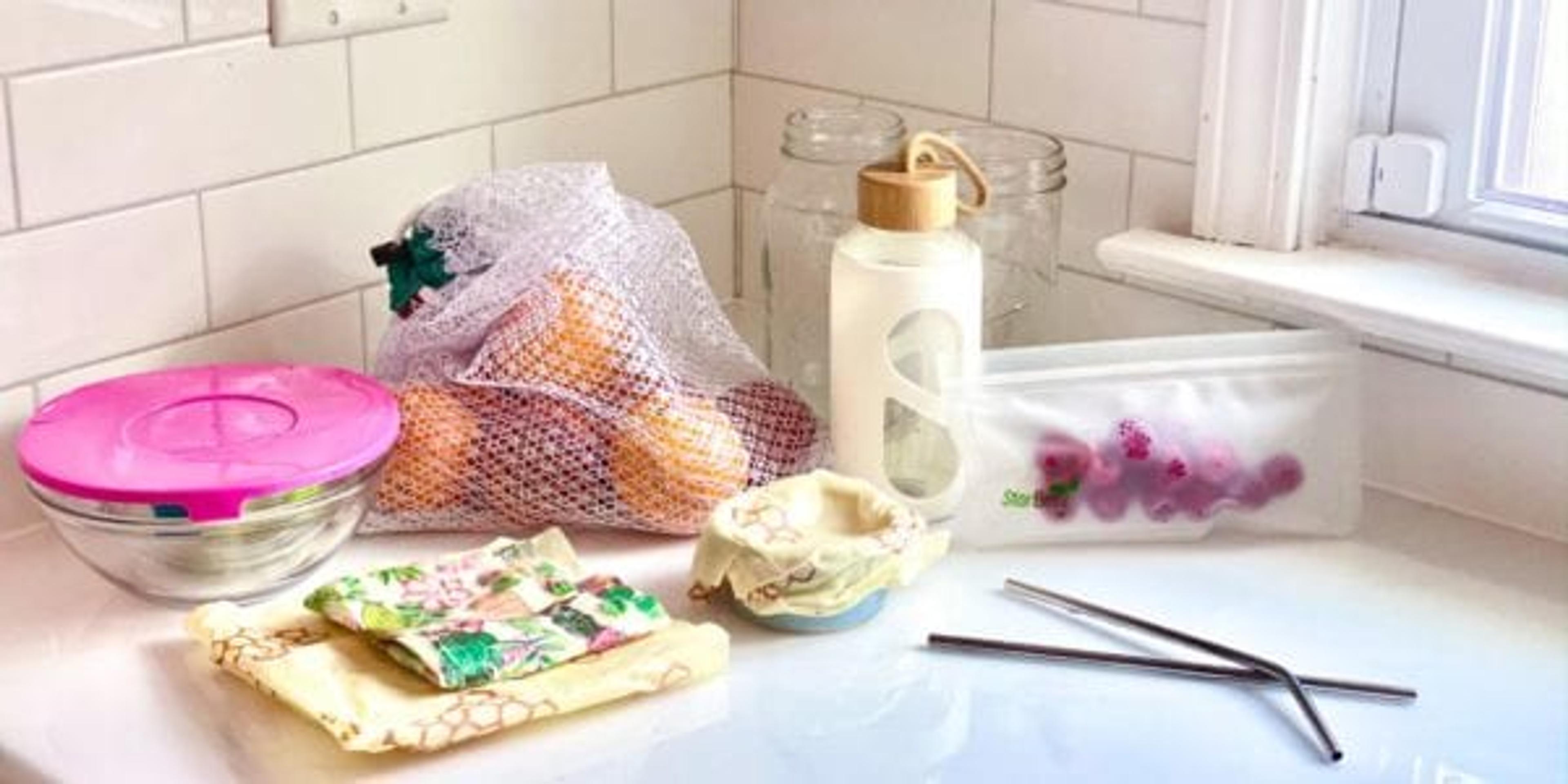Reducing Single-Use Plastic in Your Home Kitchen

Shanthi Appelo, MS, RD
| 3 min read

From the bag that carries your takeout to keeping individually wrapped snacks fresh, it’s no secret plastic can make our lives more convenient.
Though a candy wrapper here and there may seem harmless, the scale at which single-use plastic is used and improperly disposed of is difficult to imagine. In fact, more than half of non-fiber plastics comes from packaging alone and annually equals 300 million tons, about the weight of the entire human population.
Unfortunately, plastic waste is not biodegradable. However, some plastics break down to microplastics that can make their way to bodies of water, harming wildlife and making it back onto your plate as it’s commonly mistaken as food by fish or farm animals.
Single-use plastics certainly have their place, such as surgical gloves and syringes, but there are ways you can start reducing your use at home. Whether you’re looking for an idea beyond reusable water bottles or want to transform your kitchen’s sustainability, here are some places to start:
Bags. Reusable grocery bags are a staple to keep handy for many aiming to reduce plastic waste while shopping. Furthermore, mesh cotton bags are a great alternative to plastic and net bags found in produce aisles. They provide a barrier between produce and other groceries but are thin enough for the cashier to conveniently scan the goods. If you’re like me and occasionally forget to bring reusable bags, look for or request paper bags at checkout.
Straws. Whether they accompany a restaurant beverage, iced coffee or fancy homemade drink, there are many opportunities to reduce plastic straw usage. Consider skipping the straw altogether or opting for a reusable metal option. Silicone versions also are available.
Beeswax. Beeswax-coated cloths are versatile, cost-effective replacements for cling wrap. Cover sandwiches, bowls of leftovers or individual fruits with these pliable wraps. Because they are breathable, beeswax wraps are not suitable to cover highly perishable items, such as raw meat.
Mesh coffee pods. Many coffee shops sell reusable cups and offer incentives when it’s time to refill. For a convenient morning home-brew, coffee pod makers have increased in popularity. But this doesn’t mean you have to use a new plastic pod each time. Consider a reusable, stainless steel mesh version, ready to fill with grounds. This not only reduces single-use plastic waste, but is also an economically sound choice.
Food storage. Plastic food containers, even if reusable, are sometimes warped in the microwave or dishwasher. Stainless steel or glass containers are great durable options. Repurpose a pasta sauce or pickle jar for easy storage of meals, such as soups and salads.
Reusable zipper bags. Made of silicone, these can stash anything from lunch snacks to frozen smoothie ingredients. The beauty? Silicone is a heat-resistant material, making it a dishwasher-friendly option.
Interested in going a step further? When deciding between products at the store, select the option with more recyclable material and less non-recyclable waste. Next, consider day-to-day items used and explore whether replacements exist. For example, bamboo is compostable and can replace plastic toothbrushes, plates and dining utensils.
Related:
Photo credit: Shanthi Appelo





